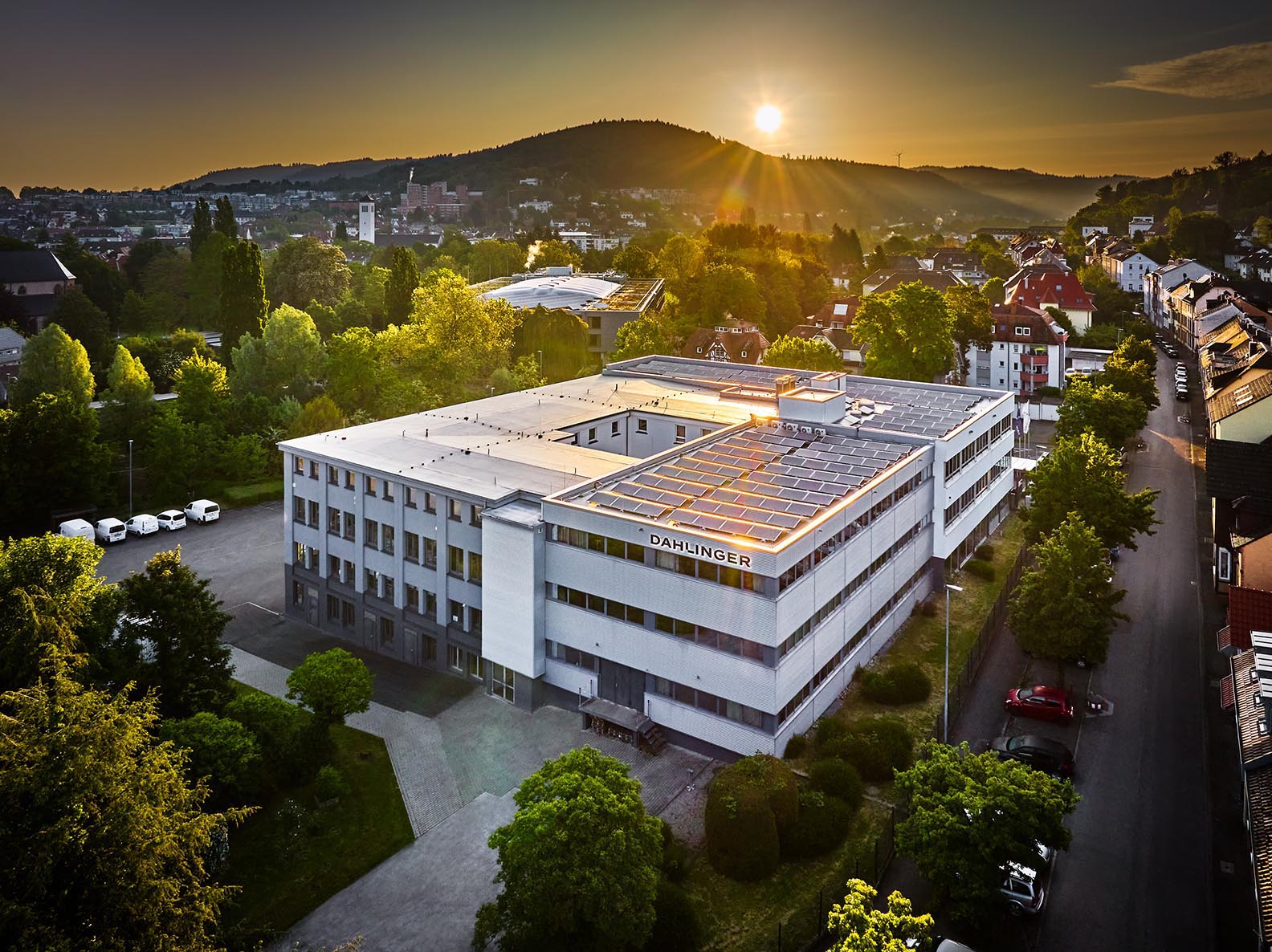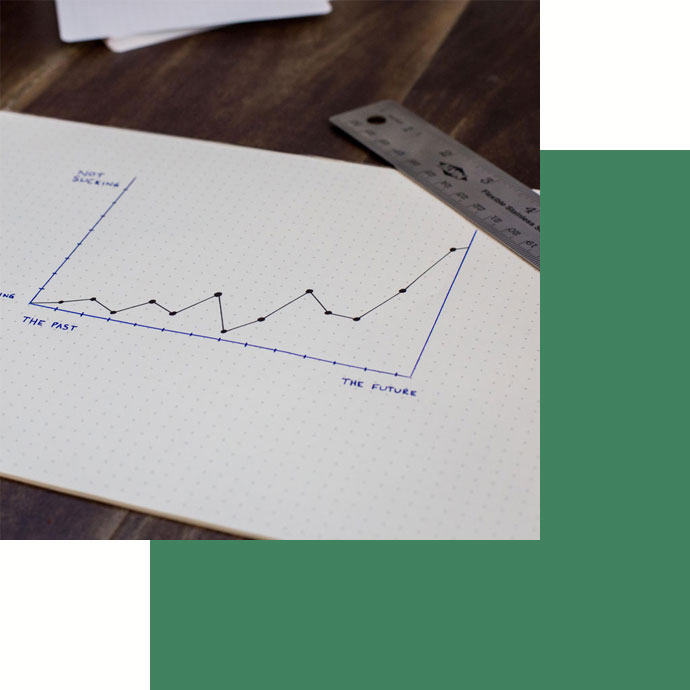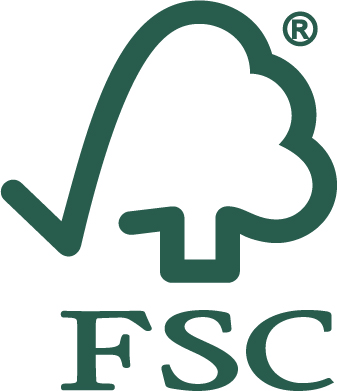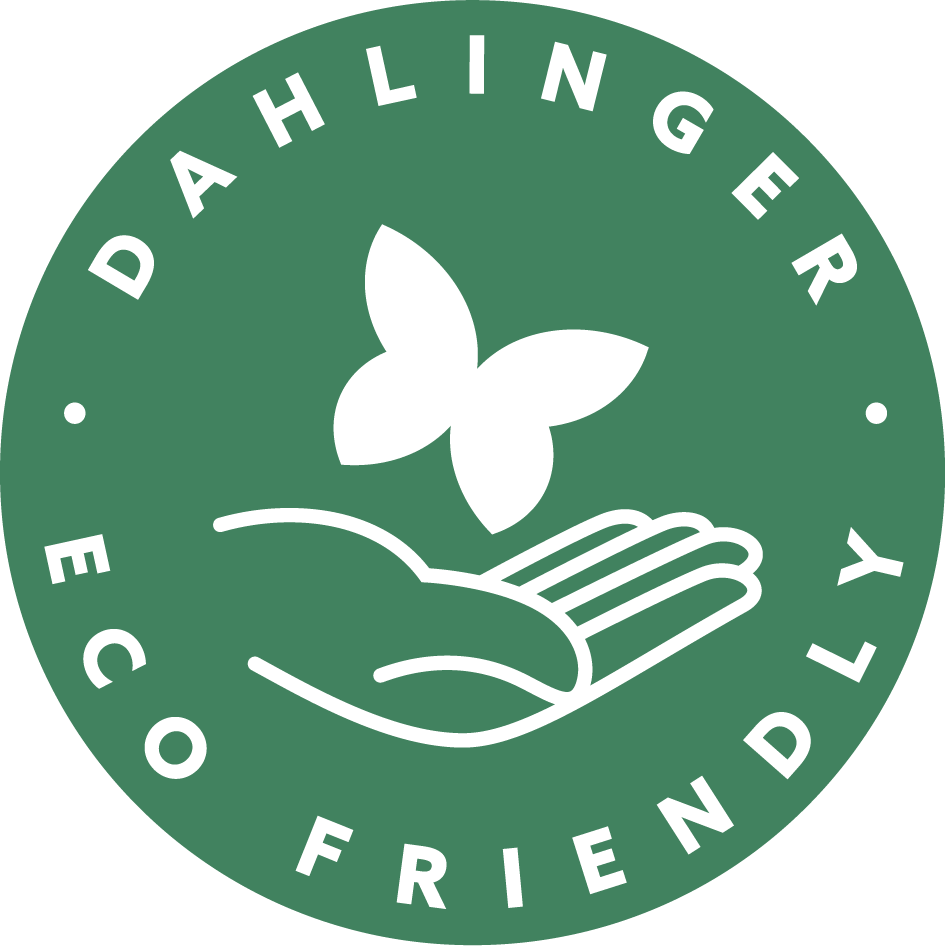Corporate Social Responsibility at Dahlinger

Download our free presentation on sustainable materials here:
If you would like to learn more about our alternative materials in a presentation, please leave your contact details to download this document:

Challenging and encouraging employees
SOCIAL SUSTAINABILITY
As a company, we are committed not only to the responsible use of resources but also to ethical and social sustainability. Transparency and safety are important to us. To ensure that these commitments are adhered to, we commission independent institutions to audit our partner companies in Asia on a regular basis. These are audited in line with the SMETA (Sedex Members‘ Ethical Trade Audit) process. The issues addressed during the audits include working conditions, health & safety at work, as well as hygiene.
Our objective at Dahlinger is to be an advanced and fair partner to all stakeholders. Respectful conduct and modern working conditions are key pillars in this endeavour. Basic and advanced training is both sponsored and supported. Flexible working conditions with flexitime working hours and a range of part-time offers support employees and help them find a healthy work-life balance. We make every effort to establish an appreciative working environment and continuously improve ourselves.
Our understanding of sustainable business
ECONOMIC SUSTAINABILITY
Dahlinger’s 150-year success story can be attributed to the prudent approach adopted by our founder and all subsequent generations. In the trifecta of the environment, economy and society, the fifth generation is now responsible for building on the legacy of its predecessors and securing good economic conditions in the long term.We keep our company on a sage growth course and align our business strategy to deliver sustainable economic development.


For a better future
ECOLOGICAL SUSTAINABILITY
As a family business, we have a long planning horizon and maintain responsible practices with regard to our environment. We act in an ecologically, socially and economically sustainable way as a matter of principle. This forms the basis for our long-term success. For us, sustainable actions already start with the product and selection of its raw materials. This then goes further with selection of the right production partner and establishment of a long-standing partnership.
We already took our first step in this direction many years ago by signing up to the Global Compact of the United Nations on June 13, 2005. We are now FSC®-certified (our FSC licence number is FSC-C153455) and are producing as much electricity as we actually consume ourselves, having completed installation of our photovoltaic system at the end of 2019. We have installed insulating glass in all of our building’s windows, switched over our lighting to LED, replaced light switches with motion sensors and much, much more. We are also far from finished, as we are aware that many small steps can also contribute to change and the actions of every individual count.
If you have any further questions about sustainability, please contact our Sustainability Manager, Stefan Bösinger (stefan.boesinger@dahlinger.com).
We place great emphasis on ensuring that our production partners also play their part. All of our key partners are therefore both ISO 9001-certified and FSC-certified, SEDEX-audited and also subject to ongoing supervision by our employees in Asia. For us, this represents the cornerstone of any long-term, trusting partnership.
The United Nations Global Compact is the world’s largest and most important initiative for responsible corporate governance. Based on its 10 universal principles, it pursues the vision of an inclusive and sustainable global economy that benefits all people, communities and markets, now and in the future.
The 10 principles of the UN Global Compact are derived from: the Universal Declaration of Human Rights, the International Labour Organization Declaration on Fundamental Principles and Rights at Work, the Rio Declaration on Environment and Development and the United Nations Convention against Corruption.

As a company, we are committed not only to the responsible use of resources but also to ethical and social sustainability. Transparency and safety are important to us. To ensure that these commitments are adhered to, we commission independent institutions to audit our partner companies in Asia on a regular basis. These companies are audited based on the SMETA (Sedex Members‘ Ethical Trade Audit) audit procedure. The audit covers aspects such as working conditions, occupational safety and hygiene, as well as environmental management.
FSC® stands for the Forest Stewardship Council® and was founded as an independent, non-profit, non-governmental organisation in 1993 as one outcome of the “Environment and Development” conference held in Rio de Janeiro. The FSC system is committed to sustainable forest management and ensures that forests are used in accordance with the social, economic and ecological needs of present and future generations.Our FSC officer Stefan Bösinger +49 7821 289120 will be happy to provide you with further information.
Dahlinger is FSC-certified and we look forward to realising tailor-made, FSC-certified products for you too. Our FSC licence number is FSC-C153455. We are committed to complying with the FSC core labour standards and will be happy to provide them to you upon request.

We follow 5 principles in product development:
Rethink | Question and rethink what has gone before.
Reduce | Reduce sizes to a reasonable minimum, eliminate components where possible.
Reuse | Provide a second use for reuse, where possible
Recycle | Use sustainable materials wherever possible; avoid composites
Respect | Materials from sustainable sources, also with regard to working conditions
Dahlinger Eco Friendly
Our label for products that are made from sustainable materials such as FSC-certified paper or cardboard or are otherwise sustainable.

Materials for the production of our boxes and cases
In order to live up to our responsibility for the environment, we use materials that are renewable and/or recycled to manufacture our boxes and cases to the greatest extent possible in order to conserve resources. An overview of the most important materials is provided below.
Wood, MDF, cardboard, paperboard, paper – wood and wood-based materials are renewable, easy to recycle and biodegradable. Depending on the product, the proportion of used fibres, i.e. fibres that have been recycled, can be up to 80%. Sustainable forest management reduces CO2. As a result, boxes and cases made of FSC®-certified cardboard make a contribution to the promotion of responsible forest management worldwide.
Plastics – Plastics have a better CO2 footprint than paperboard. However, crude oil is needed to produce plastics. Plastics can often by recycled and are also easy to recycle, which is a huge advantage. This is why we use only recycled plastics for our coated boxes. These plastics are extracted from leftovers from the plastic processing industry and households and are processed into new plastic granulate, which is then used to manufacture our box bodies. This allows us to conserve fossil raw materials such as crude oil.
Compliance with statutory requirements – to ensure compliance with statutory requirements such as REACH, we subject materials to additional testing conducted by independent institutions such as DEKRA or SGS.

